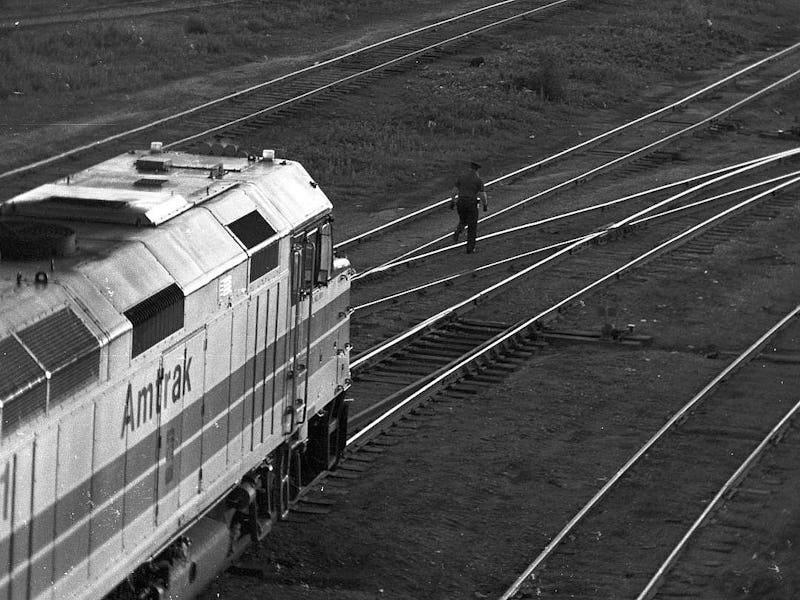The Indefensible Position: It's Time to Defund Amtrak
Why we should defund Amtrak

Editor's note: This is the second in a series of argumentative essays assigned to writers that found the pre-determined thesis morally or intellectually repulsive. Things got a little ugly.
When Amtrak was created in 1971, passenger rail was losing market share to both air travel and everything on four wheels. The expansion of the American highway system simplified the arithmetic — in terms of money and time — for drivers, clearly illustrating that the cheaper option was also more convenient. President Nixon intended for the program to be a for-profit company operated by the federal government in an ailing sector. That such a company has made few strides toward profitability is as shocking as the recent derailing in Philadelphia, which left seven dead, and proves that rail simply doesn’t work in America.
It’s time to defund this steel boondoggle.
Without a doubt, railroads played an important role in western expansion, allowing white men to bisect and steal land from indigenous peoples while ostensibly borrowing property from the federal government. The result: A flow of migrants and the creation of highly efficient, worker-friendly industries, like Chicago’s beautiful stockyards and the Plains states’ stately soy crops. Cities were nourished by the railroads, but that infrastructure, which has changed very little over the last century, no longer plays a vital role in American life. Sure, roughly 16 percent of American goods are transported by rail, but passenger and freight rail are extremely different - even if we baffle the Europeans bold enough to cross the Atlantic by treating them interchangeabl.
The argument against Amtrak is simple: It doesn’t make money. And, in fact, that problem is worse than it seems because the profits thrown off by trains in the Northeast Corridor, a heavily urbanized, extremely homosexual part of the country, subsidize the bulk of Amtrak’s other, longer, straighter routes. Given that the rest of America probably won’t urbanize over the next several decades, it’s unlikely that passenger trains will become more relevant to the daily lives of workers.
As for the crash in Philadelphia: Some might blame it in part on the lack of Positive Train Control, a piece of technology common outside the U.S. that Amtrak, which we fund, is struggling to afford. The notion that government failure to invest in the program has led to the use of antiquated technologies and all but destroyed any chance of success Amtrak had (while putting lives at risk) is circular. This is — to use a horrifying metaphor — a simple failure to thrive. Letting an infant program suckle on the teat of big government is not the solution. If a baby can’t take care of itself, how can we expect it to growing into a self-supporting adult?
That was a totally rhetorical question. We can’t.
It is also worth pointing out that there is no demand for new technologies. California probably won’t buy that Japanese bullet train the state has been eyeing. Some will say that’s due to budget shortfalls and the primacy of “water” concerns, but the reality is that Americans aren’t like the Japanese or the Chinese, or the Europeans, or the South Asians. Trains just don’t work for us because we don’t like them and you can tell that we don’t like them because Amtrak doesn’t make money.
Besides, government funds can be better used elsewhere. Nationalizing the Fung Wah bus just feels like the right thing to do.